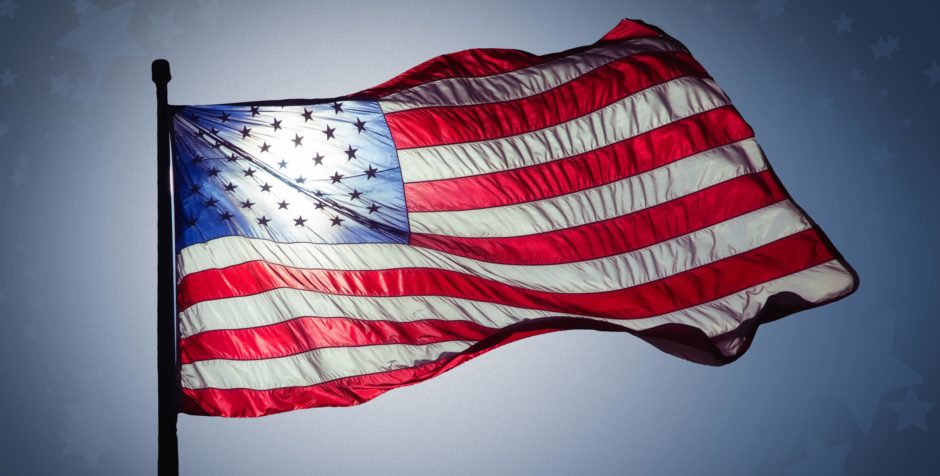Fourth Circuit Hears Oral Argument in National Security Proclamation Case
This past Friday, the Fourth Circuit Court of Appeals (thirteen active judges) heard oral argument in the case where a Maryland federal court enjoined the full implementation of President Trump’s National Security Proclamation.
The Proclamation places travel restrictions on foreign nationals from Chad, Iran, Syria, Libya, Somalia, North Korea, Venezuela, and Yemen. Those countries failed a global review the Administration conducted to determine which countries satisfy our screening standards for nationals seeking entry into the United States. We also have continuing concerns with terrorism in many of those countries.
The same Maryland court that enjoined the Proclamation previously enjoined the President’s National Security Executive Order. That Executive Order temporarily paused entry into the United States of nationals from six unstable and/or terrorism-infested countries while our government conducted the above-mentioned global review. The Maryland judge determined that the Executive Order violated the Establishment Clause of the First Amendment, among other reasons, owing to campaign comments made by then-candidate Trump and his advisors, which the judge wrongly concluded evidenced a “Muslim ban.” The judge reached the same conclusion with regard to the Proclamation.
Earlier this year, the Fourth Circuit upheld the injunction imposed by the Maryland court against the Executive Order. The Supreme Court eventually dismissed that case as moot after the terms of the Executive Order had expired.
The American Center for Law and Justice (ACLJ) filed an amicus (friend-of-the-court) brief urging the Fourth Circuit to vacate the Maryland judge’s injunction against the Proclamation. The brief was filed with the support of the ACLJ’s Committee to Defend Our National Security from Terror, which represents more than 279,000 Americans who have stood in support of the President’s efforts to protect this nation from the entry of foreign terrorists.
As we explain in our brief, the Constitution and federal statutes provide the President with broad power to exclude aliens from this country on the basis of facially legitimate reasons. When the Supreme Court has considered constitutional challenges to immigration-related actions in the past, it has declined to subject those actions to the same level of scrutiny applied to non-immigration-related actions given the sensitive and discretionary nature of the subject. That same deference should be given to President Trump here, as the Proclamation deals with national security and protecting our country from foreign terrorists.
Moreover, the Supreme Court has previously explained that a government act is consistent with the Establishment Clause if it has a secular purpose and was not motivated wholly by religious or anti-religious considerations. The Proclamation clearly serves a genuine secular purpose—protecting our national security—and is not motivated by anti-religious considerations.
Our brief explains that the Fourth Circuit should not disregard the Proclamation’s obvious secular purpose or focus on miscellaneous comments made by then-candidate Trump, or by his advisors (which have been taken out of context), as the Maryland court incorrectly did. The mere suggestion of a possible religious or anti-religious motive, mined from past comments, is not enough to doom government action. As we state in our brief, “the Proclamation does not violate the Establishment Clause. It should be enforced in full to protect our nation from foreign terrorists.”
Early last week, the Supreme Court stayed the Maryland injunction, as it did a similar injunction imposed by a Hawaii federal court, and has allowed the Proclamation to go into full effect as the appeals in those two cases proceed.
During the oral argument, Fourth Circuit judges inquired about the breadth of the President’s authority over immigration matters and the extent to which federal courts may review the exercise of that authority. Judges asked about the President’s alleged “Muslim ban” statements and their impact on the validity of the Proclamation. The government attorney properly explained that the statements are irrelevant to the court’s analysis on whether the injunction against the Proclamation should be vacated, which it should. The government attorney also correctly noted that sufficient national security findings support the Proclamation and that the President’s determination for the necessity of the Proclamation should not be second-guessed.
The Ninth Circuit Court of Appeals heard oral argument in the Hawaii case earlier last week. Decisions from both the Fourth and Ninth Circuits are expected soon.
You can find further analysis about the National Security Proclamation and Executive Order by searching the ACLJ’s website.
